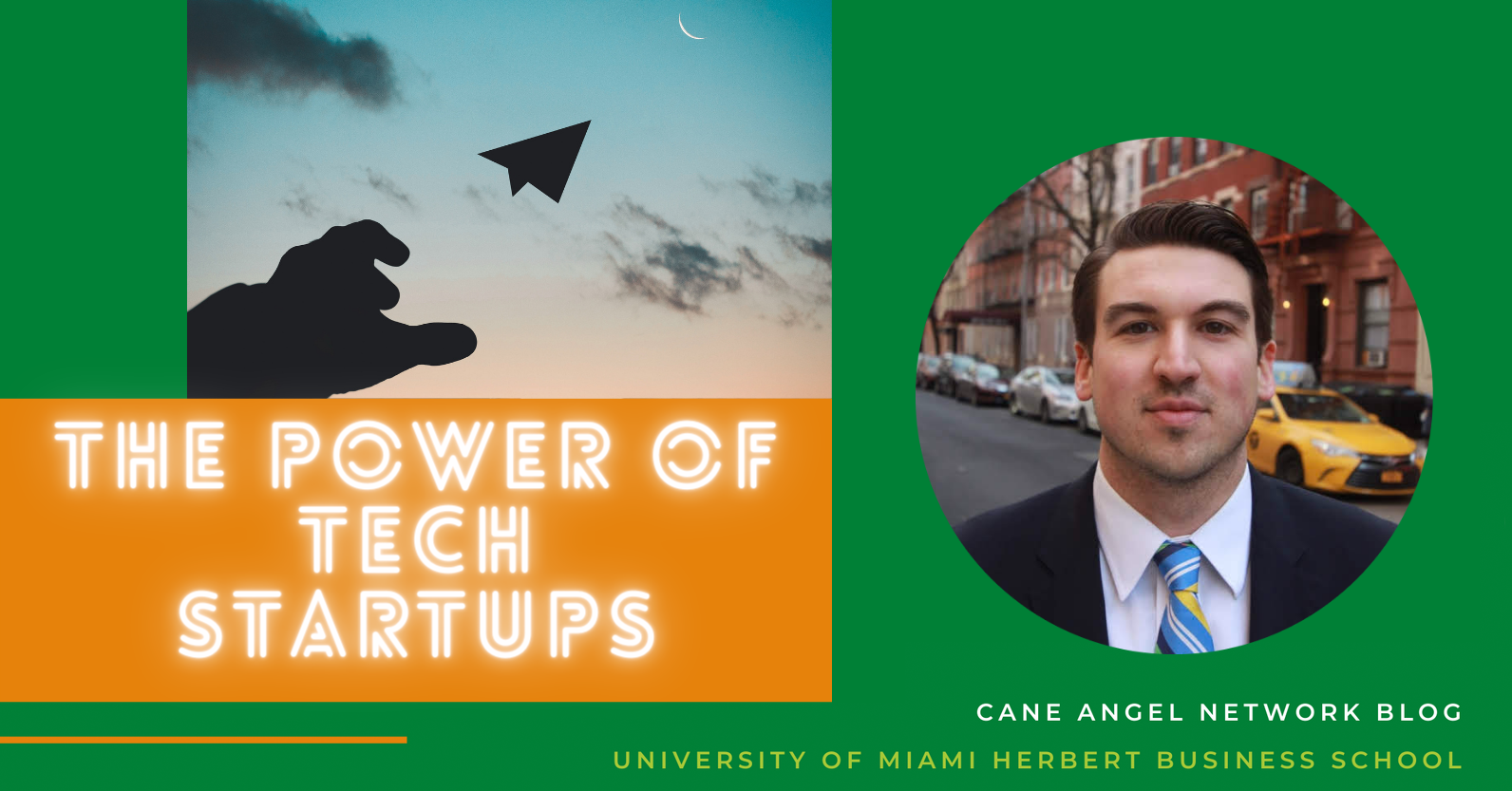
The Power of Tech Startups
By Max Spitalnick and Jeffrey Camp
Was the first venture capital financing in the late 15th century when the Queen of Spain agreed to fund Columbus’ sailing of the ocean blue? This question was posited by Shu Nyatta, Managing Director of Softbank International, at a recent event jointly held with the ‘Cane Angel Network to discuss the power of tech startups. Startups are en vogue these days, and it seems like everyone wants to work for one today. Even employees of Fortune 100 goliaths, commonly describe their teams as ‘startup within the organization. So what, Nyatta continued, is all the fuss over startups all about?
Why do we care about startups?
For Shu, it's “because simply they change the world, they are ‘small things that become big things’” and the story of how they start, how they grow and what elements are needed can be studied and used to help find and fund the next big thing.
Shu’s business lesson on the power of startups didn't start with IBM or misfit engineers tinkering around in a Silicon Valley garage, but with the aforementioned financing of Columbus’ search of a Western route to Asia. From there, Shu extrapolated to what elements a startup needs in order to have success in the 21st century. Shu’s successful startup ingredients broke down into three categories, founders, capital, and the motley crew of early-stage employees he refers to as a ‘tribe of operators’.
For founders to be successful three attributes of the founders are needed for success.
- First, being visionary, with the ability to see around the corner on trends and ideas.
- Second, creativity and being able to come up with things that are counterintuitive to the status quo.
- Lastly, being galvanizing and having the ability to bring people together.
While Shu’s talk generally focused on what founders need, he paused to highlight that he didn't say the need to be an expert. Stating ‘you don't need to be an expert, you just need to be obsessed with a problem.’ and adding that ‘often expertise can count against you, because you'll believe things can’t change in (this) industry’
For capital providers, particularly venture capital, success is more easily found by VC partners who are patient in their investment approach, flexible in their thinking and able to move their feet when the data shifts, and who are ‘very very curious’. Quoting venture capitalist Don Valentine: “You have two ears and one mouth, you should act in proportion”
Lastly, behind the captain and capital is a “tribe”. Shu was very adamant that ‘startup employees are not employees, they're not a family either, they are a ”tribe”. They will kill for each other, and lose sleep for each other, and go all the way to build these things maniacally, following the founder and fueled by the capital.’ With that in mind, a diverse and agile tribe of operators that brings together many points of view, does not argue with circumstances and is optimistic is essential in his equation. Shu believes that in terms of levels of optimism ‘The average big company is probably a 4/10, while a startup is a 12/10, and that's (level of optimum) what's needed to get up in the morning and make these things work’.
When a strong founder, value added VC and a tribe of operators come together, you can create half a trillion dollars. Simple! Or perhaps paraphrasing Warren Buffet’s comment on investing “it’s simple, it just isn’t easy.”
This page was written by Max Spitalnick and Jeffrey Camp. Mr. Max Spitalnick is a member of Cane Angel Network investment team and is pursuing an MBA from the University of Miami graduating in Spring ‘23. Mr. Camp is the Managing Director of the Cane Angel Network.




